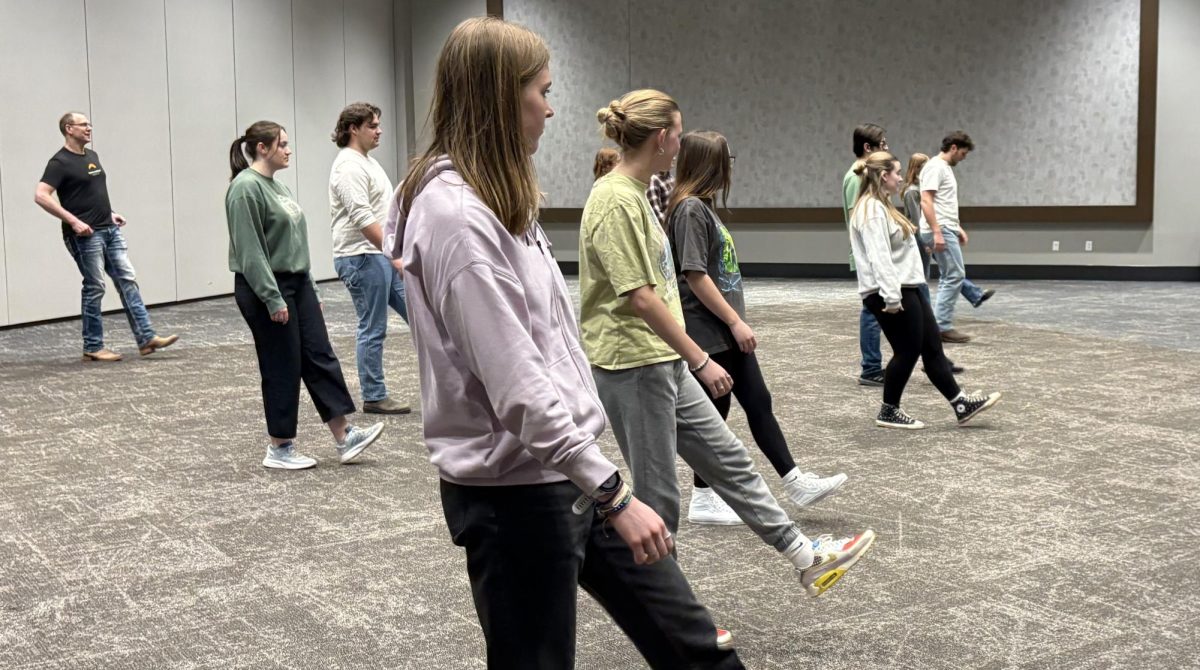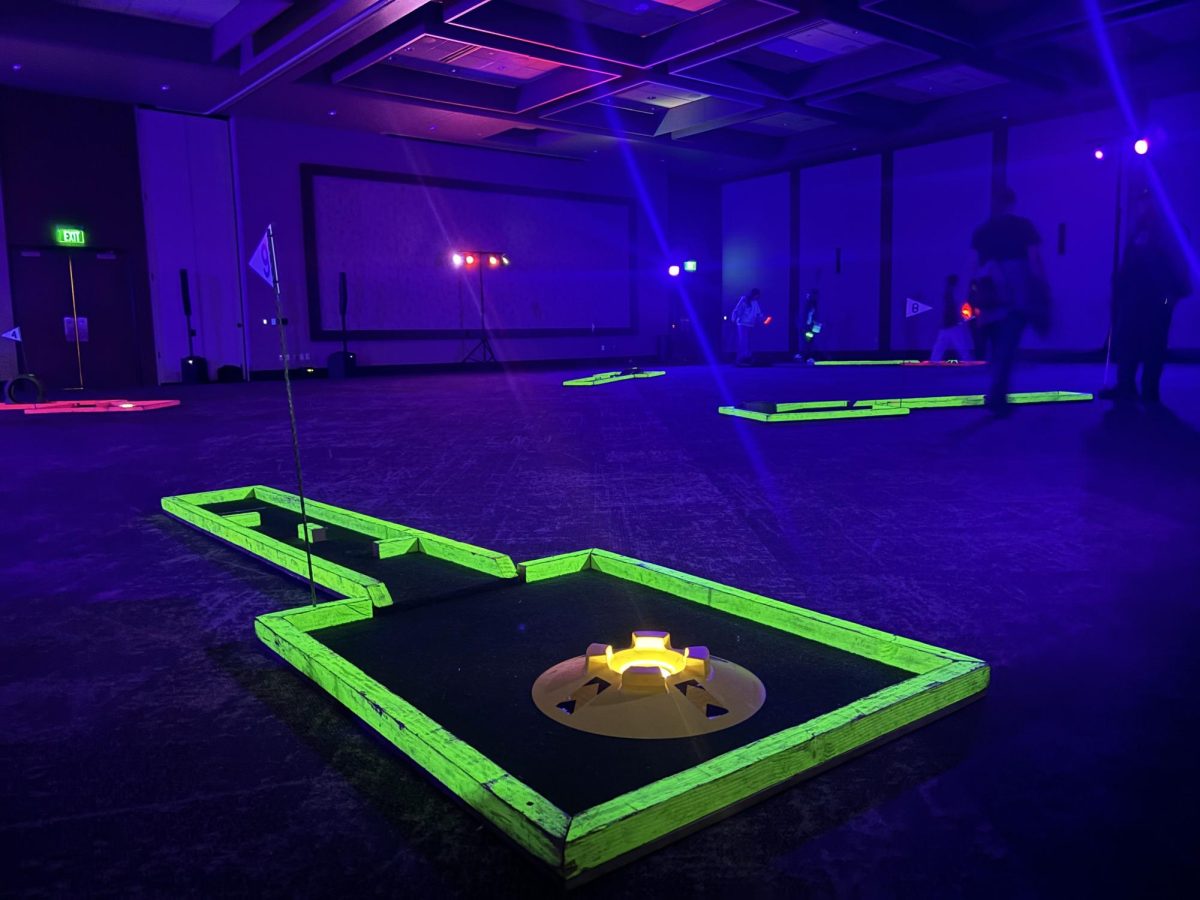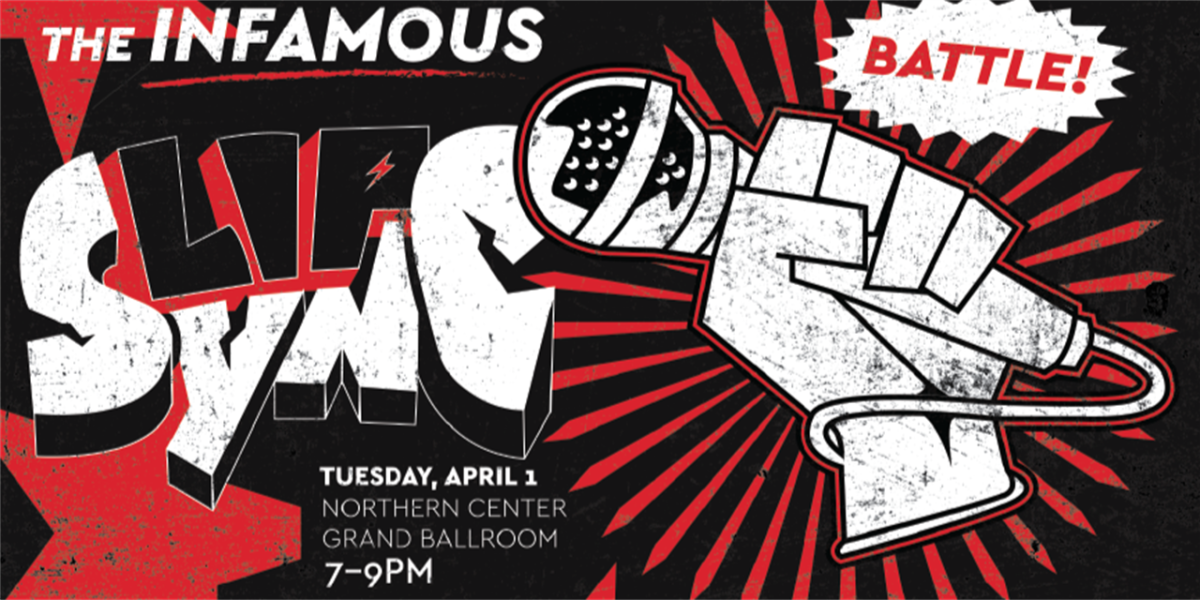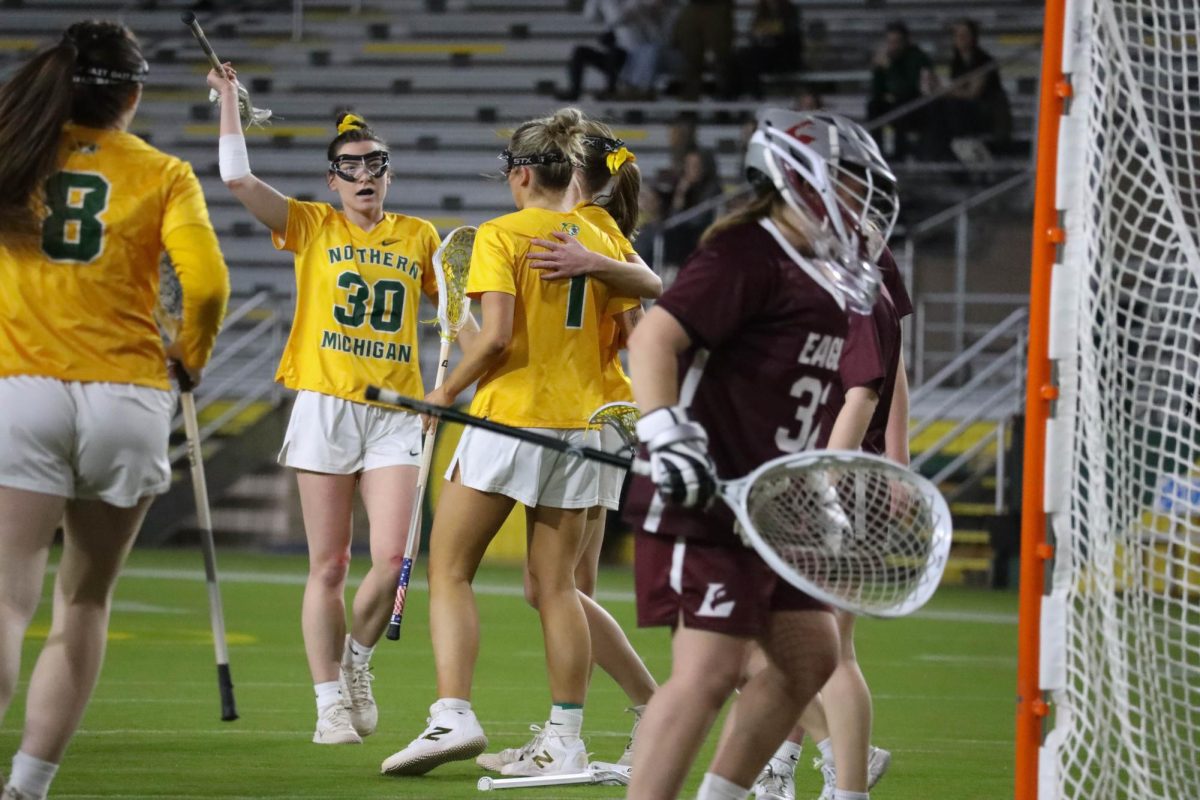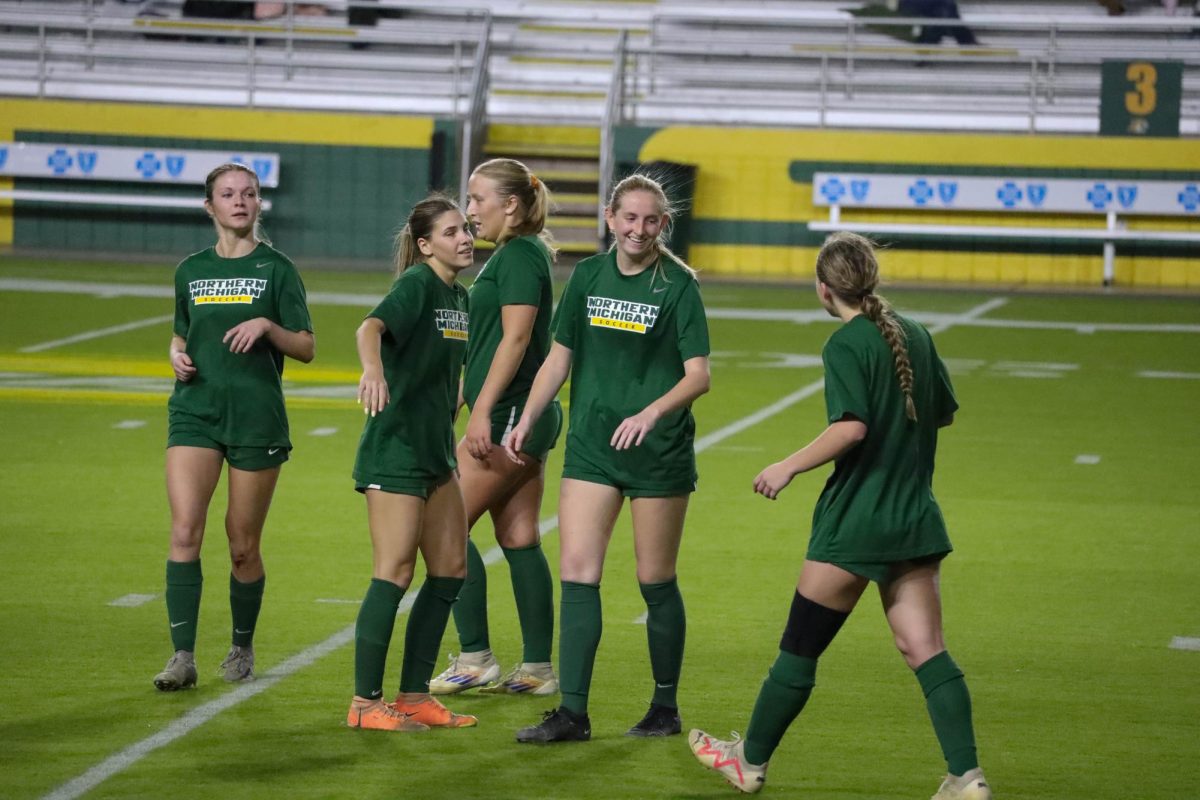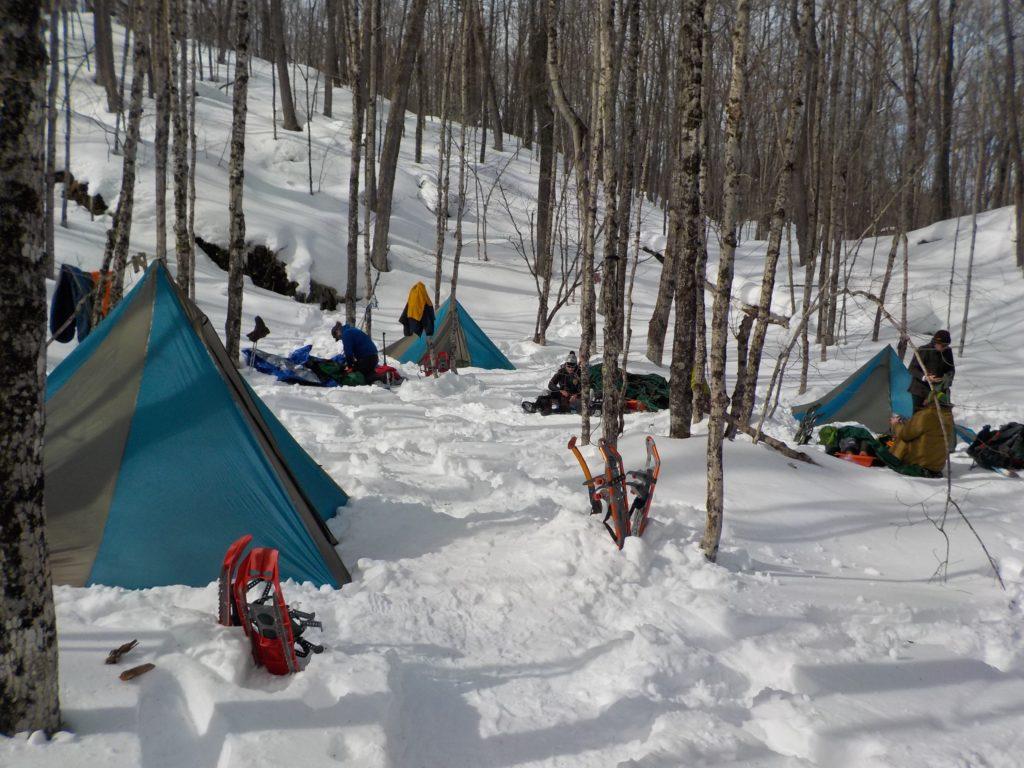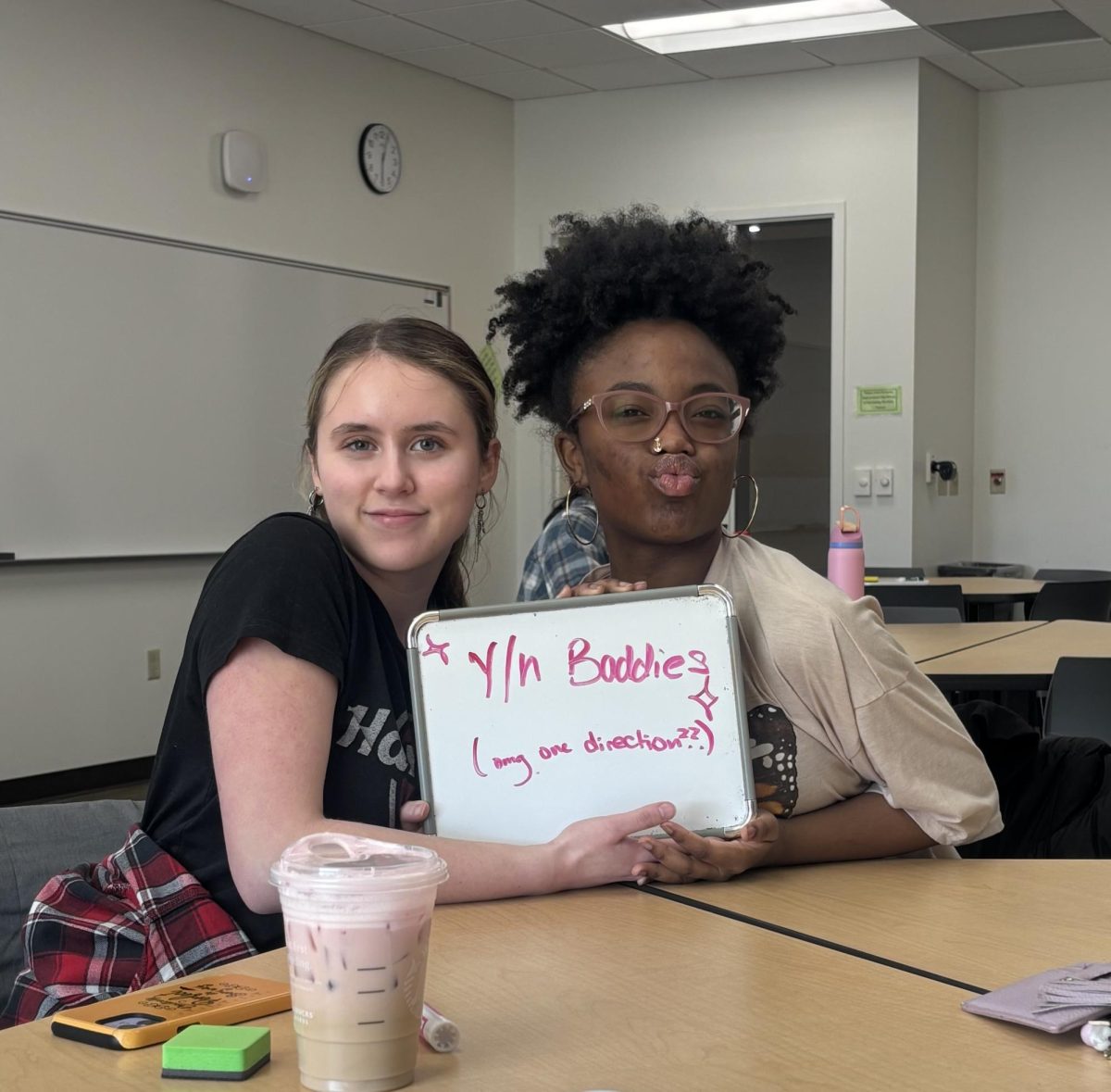Outdoor recreation students embark on a winter camping expedition
Except for the sound of your snowshoes gliding over snow as high as saplings, it’s silent in the wilderness. Your backpack and gear sled contain the essentials for your survival. Your breath mists, and you munch on a Snickers bar, enjoying a week unplugged from the worries of urban civilization.
During spring break, 12 NMU outdoor recreation students and three faculty set out on an eight-day backcountry expedition to the McCormick Wilderness for their RE356 Wilderness Stewardship course from March 3 to 11.
The McCormick Wilderness is 16,925 acres of rustic woods located in Michigamme Township and managed by the U.S. Forest Service. In the winter, its lakes, rivers and waterfalls are crusted in ice, and most of the wildlife hibernate. It’s a quiet and remote destination about 45 miles from NMU, ideal for the backcountry expeditions of NMU’s outdoor recreation and leadership management program.
This stewardship course, reserved for outdoor recreation juniors and seniors, is the longest and often the final field experience students have in the program. It gives these students “something really cool to leave with… a high point,” said Jeremiah Johnston, the contingent instructor of the course. It requires students to apply the skills they’ve learned in class to survival in a wilderness setting, he said.

This trip tested not only their survival abilities but also their group dynamics as an expedition team—challenges for which these students felt well prepared.
“The group you’re with can make or break a trip,” Johnston said. “Groups that get along well, or more importantly function well together, can make a big difference in whether your expedition is successful, safe and fun or a grind and a suffer-fest for everybody. This trip was fantastic. We had a group that got along well,” he added, a smile peeking out from his red beard.
The students snowshoed or cross-country skied, wearing backpacks and pulling sleds with the rest of their gear. They camped in three-person tents most nights of the trip, and built six-person snow shelters the last night. Using backpacking stoves and dehydrated ingredients, they cooked calorie-rich meals like fettuccini Alfredo, garlic cheesy bread and sweet potato soup. Each person needed about 3,000 to 5,000 calories a day to survive in the cold, explained Emily Gantner, a senior outdoor recreation major in the course. Plus, they ate numerous candy bars for a “delicious” calorie and morale boost, she said.
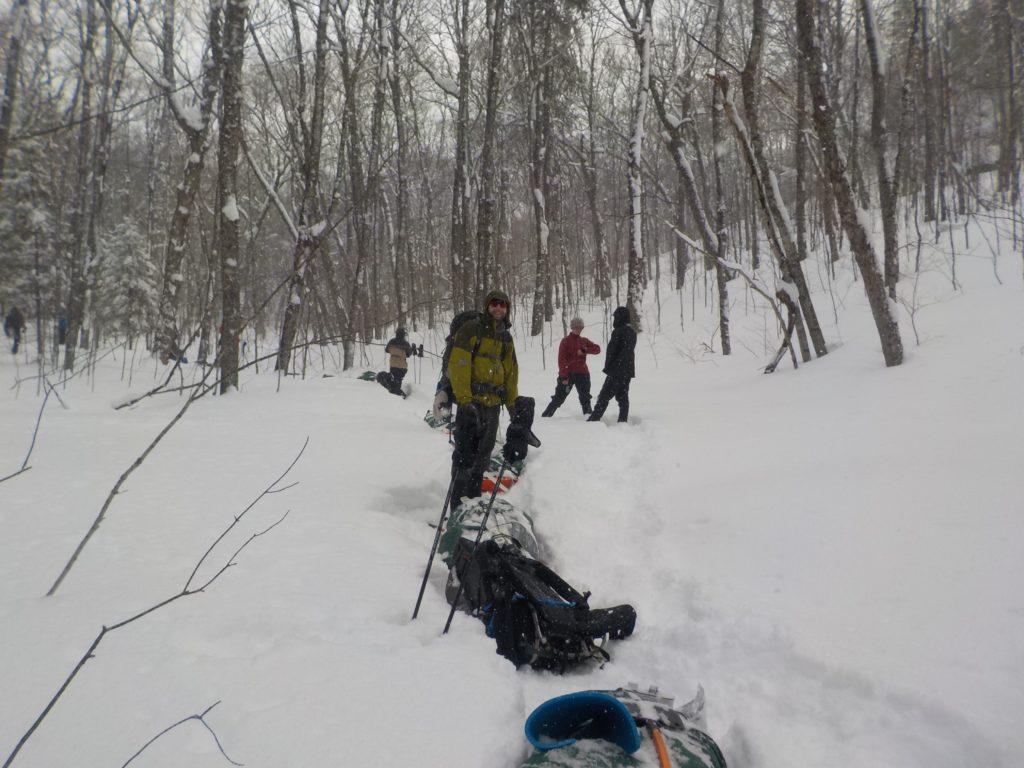
They boiled snow for their drinking and cooking water. Since they were following strict Leave No Trace principles, they didn’t use soap and they drank their dish water to conserve resources. They even defecated in resealable “poop bags” so they wouldn’t leave their human waste frozen in the snow until spring.
As part of the expedition, they moved base camp several times, navigating by map and compass to coordinates given by their instructors, breaking new trails across the pristine snow. Each student spent time as “Leader of the Day” to develop their command and decision-making abilities for the good of all members of the team, Gantner said.
“You have to check in with every single person in that group and weigh the benefit to the doubt,” Gantner said. “A big thing about outdoor recreation is skills, but actually the most important part of it is leadership and group development. You can develop the skills later, but you have to have those other things there too.”
As the weather dipped from near 40 degrees and sunny to minus 12 or lower at night—the kind of weather that makes ice grow on sleeping bags—they each developed a personal system to stay warm, remembering to keep moving, eat calories and stay dry. The students looked after each other, and even shared socks if someone needed fresh ones, Gantner said.
“No one is the weakest link,” she explained. “Everyone is an equal participant, so part of that group dynamic is being able to make everyone comfortable.”
The students grew and learned as a community, agreed Dan Vanderveen, another senior outdoor recreation major in the course. He added that while the instructors had satellite phones in case of emergency, the students kept their technology to a minimum, allowing them to focus on the experience at hand.
“I’m definitely a changed person,” Vanderveen said. “I could just focus on the present moment, and I really enjoyed that. McCormick is beautiful. Just being totally with yourself and these amazing people in an amazing place is an incredible experience. I loved it. Spending an extended amount of time without screen time, you learn a lot about yourself… you’re able to be your true self out there.”





